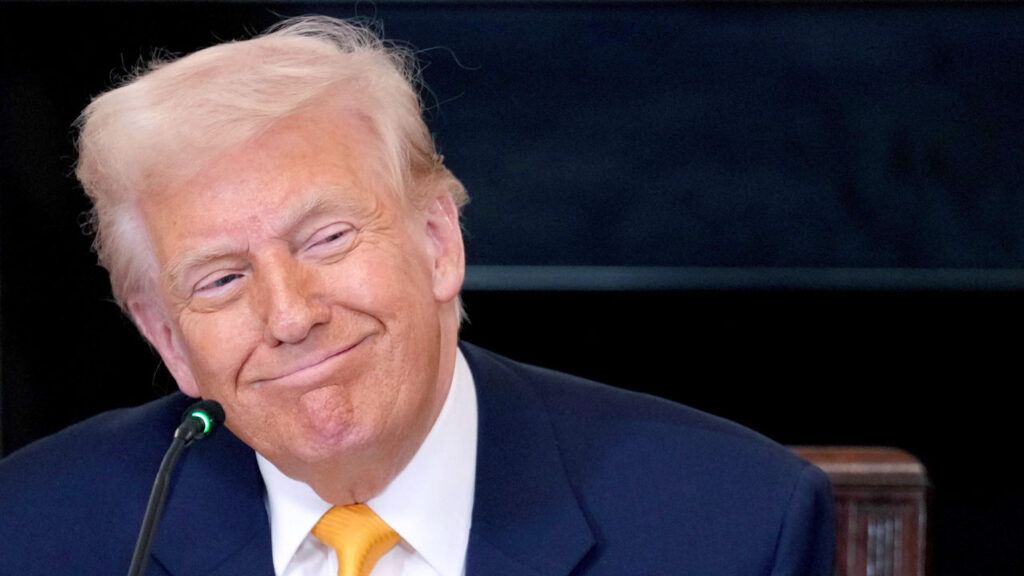Engaging with the enigmatic figure known as the “tariff king” presents significant challenges for those involved in international trade negotiations. The process is fraught with complexity, lacking established protocols or clear routes for communication. In essence, reaching a satisfactory agreement demands not only the right approach but also a strategic understanding of the political landscape, particularly in relation to the unique dynamics of the current administration.
For instance, Maros Sefcovic, who serves as the EU’s trade commissioner, recently dedicated numerous hours to discussions with two prominent advisors to the U.S. President, Jamieson Greer and Howard Lutnick. Despite the considerable time and effort expended in dialogue, Sefcovic departed from these conversations without securing any tangible agreements. A key point of frustration for Sefcovic and other European Union officials is the realization that Greer and Lutnick, while they hold influential positions, do not possess the necessary mandate to finalize any deals. The authority to resolve such negotiations ultimately resides with the President of the United States, often referred to colloquially as “POTUS.”
In this intricate landscape, negotiations are further complicated by the unpredictable nature of the individuals involved. The tariff king, who remains at the center of this web of negotiations, operates outside traditional political boundaries, creating an atmosphere of uncertainty that complicates the EU’s effort to engage meaningfully with U.S. trade policies. As one EU official candidly remarked, “We have offered to negotiate,” underscoring the willingness of EU representatives to partake in discussions. However, the lack of a clear mandate from the U.S. side means that any progress is contingent on the decisions made at the highest level of American leadership.
The situation illuminates the broader challenges faced in international trade relations between the U.S. and the EU, which have historically been characterized by both collaboration and contention. With the global economy being interconnected more than ever, the outcomes of these negotiations have far-reaching implications. Businesses and economies on both sides of the Atlantic are undeniably influenced by tariffs and trade agreements, impacting everything from local job markets to international supply chains.
As the dialogue between the EU and the U.S. continues, the stakes wield considerable weight not only for policymakers but for countless stakeholders spanning various industries. The intricate details of trade negotiations can dictate market access, influence competitive advantages, and even affect diplomatic relations between nations. Therefore, every conversation, every proposal, and every potential deal becomes a critical piece of the larger puzzle.
Moreover, the nature of these discussions is emblematic of a larger trend in global trade dynamics—an era where traditional mechanisms of diplomacy are challenged by populist sentiments and domestic pressures that prioritize national interests above multilateral cooperation. As nations grapple with the implications of this shift, the ability to adjust to new realities becomes paramount.
To navigate this evolving landscape successfully, creative and pragmatic strategies must be employed. Swift and decisive actions from parties with authority will be crucial in the effort to resolve lingering tariffs and trade disputes. Moreover, reliance upon intermediaries like advisors is insufficient; engaging directly with decision-makers may be essential in reducing bureaucratic delays and fostering trust.
In conclusion, the task of courting the tariff king encompasses a multitude of challenges that transcend simple negotiations. It underscores the complexities of modern trade dynamics, pushes the limits of diplomatic engagement, and reveals the necessity for comprehensive approaches to foster meaningful discussions. As the global economy faces uncertain futures, striking a balance between local and international interests will be critical in paving the way for successful trade relationships.









